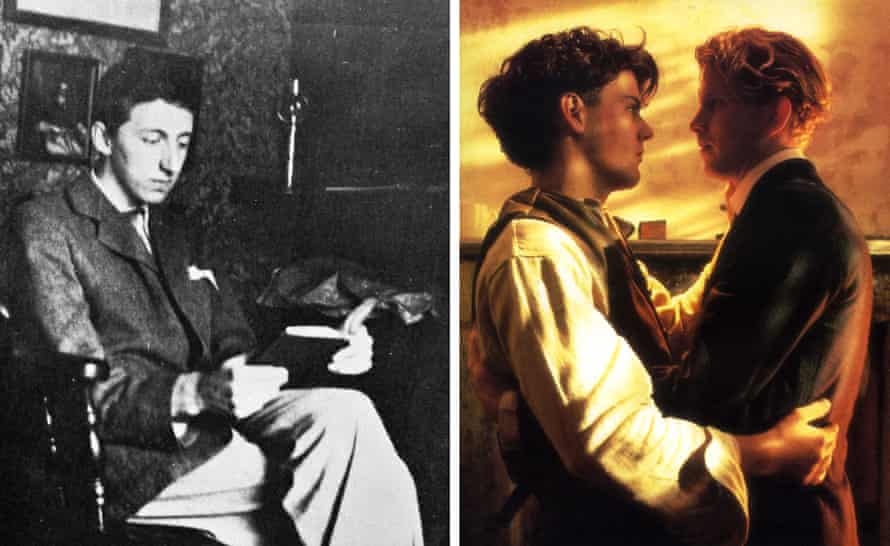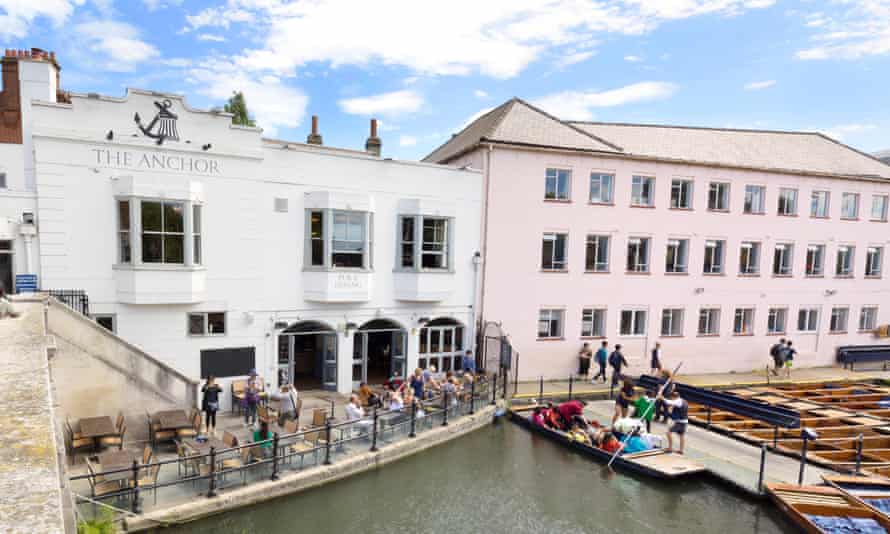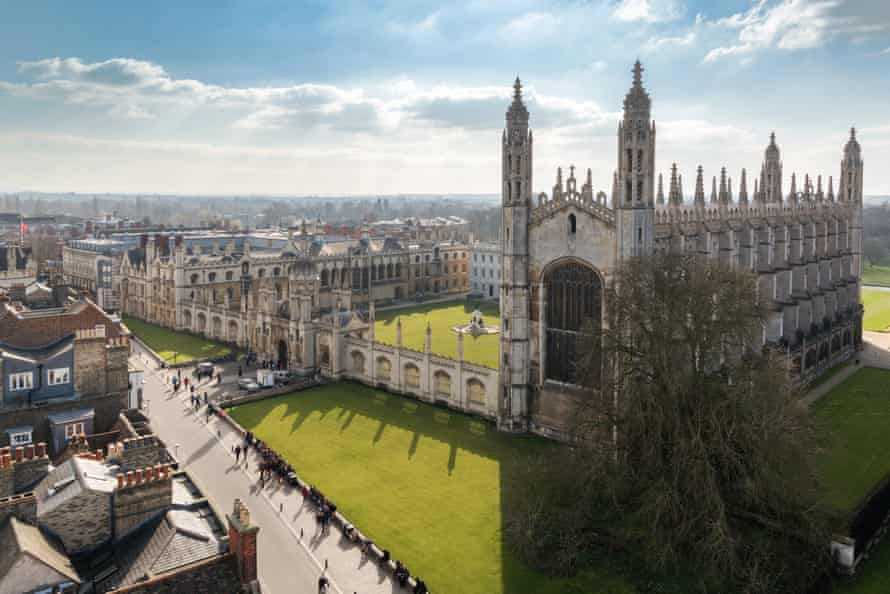‘The virgin shine of the place.” Ali Smith’s novel Like, published in 1997, captures what it feels like for many LGBTQ+ people arriving in Cambridge for the first time. Aisling, the novel’s gay, Scottish, working-class heroine, follows her girlfriend to the university city. She feels alienated by it immediately. “I had stepped off the bus on to a different planet,” she thinks.
I remember thinking something similar when I moved to Cambridge a few years ago. Looking around, I saw no visible signs of queer life: no gay bars or cafes, and only one monthly club night. I’d never felt more like a queer Irish immigrant who’d spent a decade in Brighton. With my tattoos and my annoying attention to people’s pronouns, I felt very out of place.
How could this be? For a bookworm like me, Cambridge had a queer prestige like nowhere else. Over the years, it was home to a plethora of gay lit legends, from EM Forster and Edward Carpenter to Patricia Duncker and Stephen Fry. In their queer books they all wrote movingly of the place. Smith herself had moved here from Scotland some years ago. Was I missing something?

I set out to unearth Cambridge’s queer history for myself, led by the writers I loved, and by chats with older LGBTQ+ people from the city. I discovered that Cambridge has indeed a rich and radical queer past. Not only has it fed the homosexual imaginations of a host of authors, but its spaces and streets have been central to queer political organising. I also discovered something unexpected: a sense of belonging. It turns out what I was looking for all along was a connection to a place and the people who once moved through it.
I wanted to share that feeling with others, especially those young queers who might arrive here in the future and feel just as out of place as Aisling and I did. So I put all my notes together, roped in my radio producer friend and created a free queer audio trail of Cambridge. I called it A Great Recorded History, in reference to Forster’s remark that queer past is “a great unrecorded history”. The trail is a record, but it also tries to evoke the sense of belonging I felt.
That feeling has been hard to come by lately. Confined to our homes, we’re cut off from many of the spaces around us. According to a recent report by University College London and the University of Sussex, lockdown has hit queer people especially hard. A sixth of LGBTQ+ people surveyed said they had experienced discrimination because of their sexuality during the pandemic. Many admitted to increased mental health issues like depression and feelings of loneliness. Social isolation came up again and again as one of the biggest causes.
An audio trail can help combat social isolation. It offers connection to a place and a past, and a connects you to people – in a socially distanced way. Listening to the voices of others draws you out of yourself, and encourages you to relate to them, often across the vastness of time. You realise someone else walked these streets, and may have felt the same way. Forster’s dictum “only connect” is the key. A Great Recorded History connects listeners to queer histories, spaces, and stories.

Stories of people like Paulina Palmer, a vigorous octogenarian who has lived in the city for 50 years. At the first stop on the trail, in front of the Anchor pub on Silver Street, she remembers coming to Cambridge in the 1970s. “Like much of the UK at the time, Cambridge was a place of contradictions,” she says. “On the one hand there was this oppressive climate. But on the other, there were these political groups that were starting up, like the Campaign for Homosexual Equality.” Paulina met many lovers and lifelong friends through her immersion in queer activism. On Saturdays they all put on their best bell-bottoms and headed to the Anchor, home to the best gay club in the city.
EM Forster is the first person most people think of when they think of queer Cambridge. The novelist’s name is forever associated with King’s College, the next stop on the trail. Forster is now considered something of a gay granddaddy, but he didn’t publish any explicitly homoerotic work in his lifetime. When his novel Maurice came out after his death in 1971, it was celebrated far and wide by readers emboldened by gay liberation. Forster’s pioneering gay love story unfolds against the backdrop of the city’s lush parks and languid waterways.
They are also the setting for Edward Carpenter’s reflections on his gloomy youth at Trinity Hall College – the third stop on the trail. “How the walks under the avenues of trees at night, and by the riversides were haunted,” he wrote in his autobiography My Days and Dreams. “Full of visionary forms for which in the actual daylight world there seemed no place.” An environmentalist and radical socialist, Carpenter was also a staunch advocate of overt homosexuality. “Out and proud” later in life, he nonetheless spent his student days in the same isolation and secrecy many closeted young people experience.

The lonely Carpenter would have found a warm welcome at the next stop, the former Turk’s Head pub on Trinity Street. Les Brookes and his partner Phil Bales fondly remember the gay pub’s longtime barman, Terry. “It was a very friendly place because of Terry,” Les recalls. “They used to call him ‘Mother’.” Phil remembers that on Mother’s Day, the place would be festooned with flowers given to Terry by his patrons. Many queer lost souls found their place through his efforts. “He had this great gift,” says Les. “Two people would be sitting alone at the bar, and he’d introduce them. That was his thing. He had a great manner.” Alas, the Turk’s Head is long gone.
One of the recurring themes of my conversations with people like Les and Phil is the companionship and community that queer spaces in the city fostered. Gay pubs run by the likes of Terry and clubs like the one at the Anchor were vitally important safe spaces. Queer solidarity grew in other places too. The Cambridge Lesbian Line was set up in a terrace house on Eden Street, the final stop on the trail. Once home of the Women’s Centre, the Lesbian Line offered information and support for lesbians and bisexual women every Friday night. When they weren’t using the telephone, they kept it in a closet.
• Download A Great Recorded History: Queer Cambridge Audio Trail. Diarmuid Hester is a writer and academic. His new book, Nothing Ever Just Disappears: A New History of Queer Culture Through its Spaces, will be published by Allen Lane in 2023
Celebrate LGBTQ+ History Month with these audio trails around the UK
Stride With Pride, Glasgow
This gem from the Glasgow Women’s Library highlights some of the people and places that have been a part of the city’s rich LGBTQ+ heritage. Free.
West Yorkshire Queer Stories, Leeds
Download the app and step out on to the streets of Leeds accompanied by the fascinating stories of LGBTQ+ people collected for this West Yorkshire Archive Service project. Free.
Queer the City, Liverpool
Created for the Homotopia festival, this series of atmospheric podcasts takes you on an art crawl around Liverpool guided by LGBTQ+ voices. Free.
Desire, Love, Identity, London
A virtual trail for the ancient history buff, this marvellous series explores the hidden queer history of objects from the British Museum. Download from iTunes, Google Play Music or Spotify.
Queer Out Here, anywhere
Take a wander outside in the company of other queer outdoorsy types with this excellent crowdsourced audio zine. Free.





